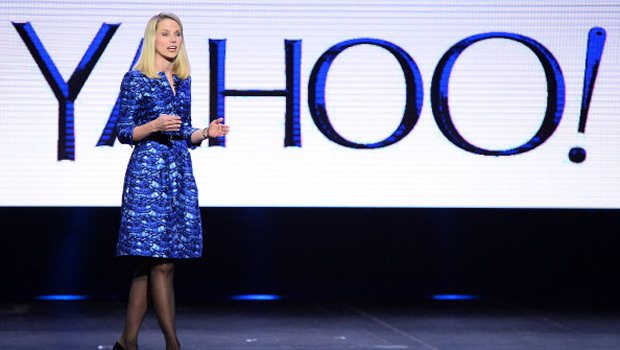Financial Odds — The Verizon/Yahoo Deal

On Monday, Verizon announced that they had purchased the core Internet properties of former search engine giant Yahoo for $4.8 billion. The United States’ biggest cellphone provider was vague about their plans for the properties bought from Yahoo but that’s not uncommon in this kind of deal. The biggest surprise was that it took so long. During the 1990’s, Yahoo was the biggest name in the Internet business and was once valued at $198 billion (US). The business grew complacent and clueless and watched helplessly as Google took over the world. As recently as 2008, Microsoft offered $48 billion for Yahoo. That deal never materialized, and Yahoo continued to spin down the tubes.
Verizon bought the assets of AOL last year for $4.4 billion. AOL’s ad serving technology is surprisingly robust so there’s at least some rationale for that purchase. Wall Street types are less skeptical about the Yahoo purchase than the tech media but it’s all based on corporate gibberish about synergy, scale and ‘omnichannel content’. The ‘glass half empty’ view–Verizon has paid over $9 billion for the Internet’s dinosaurs and the type of television-esque content favored by your parents and other demographics that want a ‘media gatekeeper’.
There’s a lot of questions about the Verizon/Yahoo deal and what’s the use of questions if you don’t attach some betting odds to them?
VERIZON/YAHOO DEAL BETTING ODDS
WILL YAHOO CEO MARISSA MAYER STAY WITH THE COMPANY AFTER THE DEAL CLOSES IN EARLY 2017?
YES -240
NO +200
Mayer says she wants to stay with the company. AOL CEO Tim Armstrong, whom Verizon has put in charge of the ‘integration’ says nothing has been decided. Mayer’s tenure hasn’t been a success on the balance sheet–last quarter Yahoo lost $440 million. In all fairness, the ship was sinking and full of water long before she took over. If anything, Verizon has a strong motivation to keep her around for the near term if nothing else than to serve as a liaison to the Yahoo corporate hierarchy during the transition. They’ve also got 55 million reasons to give her something to do–she has a severance package that pays her $55 million if she’s shown the door.
WILL THE COMBINED YAHOO/AOL PROPERTIES BE CALLED:
AOL +150
YAHOO +200
AOL/YAHOO +350
NEITHER NAME WILL BE USED +1150
It’s hard to read the thinking on this. Verizon is justifying the purchase of Yahoo by touting their large audience and ‘name recognition’. They did the same thing with AOL when they made that deal. The AOL name has a marginally better chance of emerging at the top of the heap due to Tim Armstrong’s role in ‘integration’. They could split the difference and use both names or a combination of the two names. Or they could just rebrand everything with the ‘Verizon’ name or come up with a new name. A case could be made that both ‘AOL’ and ‘Yahoo’ are names as relevant as ‘Philco’ and ‘Edsel’ but the corporate types involved with the deal are at least giving lip service to the fact that they have value.
SALE PRICE OF YAHOO’S ‘ASIAN PROPERTIES’ (ALIBABA AND YAHOO JAPAN):
OVER $40 BILLION US -110
UNDER $40 BILLION US -110
The primary reason that Yahoo shareholders were anxious to unload their ‘core Internet assets’ was to facilitate the sale of the ‘Asian properties’. It doesn’t say much about Yahoo’s supposedly compelling ‘content’ that most of the company’s value was derived from their interests in two very successful Asian Internet companies. Yahoo owns 15% of Alibaba worth approximately $32 billion and 35.5% of Yahoo Japan worth $8.7 billion. We’ll make it simple and call it $40 billion for the combined properties. On one hand, it’s hard to see a company overpaying for these assets given Yahoo’s current situation. On the other hand, their ‘Asian exposure’ has a lot of cachet. Much has to do with external factors–most significant, perhaps, the stock price of Alibaba. If it tanked for any reason Yahoo’s stake would be worth considerably less.
WILL YAHOO’S SHAREHOLDERS APPROVE THE DEAL?
YES -450
NO +300
There’s every reason to think that Yahoo’s shareholders will approve this deal. In fact, they’re the ones that have been pressuring Mayer et. al. for a way to ‘unlock the value of their Asian investments’. Getting rid of the ‘core Internet properties’ is the first step. Of course, something can always happen to throw a monkey wrench into the works but given the will of the shareholders over the past couple of years it should be approved.
